It's amazing how fast things have shifted. Less than a year ago, SEO still felt like a game of "7 Tips to Boost Your Rankings with Backlinks & Content Updates." But now? My LinkedIn feed is full of posts like "How to Get Your Brand to Rank #1 on ChatGPT," "How Zero-Click SERPs Are Changing SEO," and "How to Use Reddit & LinkedIn for Marketing in 2025."
SEO has done a full 180. It's no longer just about ranking on Google—it's about making sure LLMs like ChatGPT, Perplexity, Gemini, and DeepSeek actually recognize and recommend your brand.
The old SEO playbook felt like a checklist: create good content, build backlinks to it, update the content with better examples. Fast forward to now, and it's all about training AIs to understand who you are so that they can recommend your brand in the millions of conversations they engage in every single day.
In late 2024, the marketing community coined a new term: generative engine optimization (GEO), the practice of optimizing content to be recognized and surfaced by AI models, ensuring they accurately retrieve and present your brand when users ask questions.
I won't pretend to be an AI expert—I'm just a marketer trying to reverse-engineer how these models surface information. But in this article, I'll share my approach of how I check and track rankings on LLMs and create a content and PR strategy to climb these rankings. This is all new territory, so take my insights with a grain of salt—we're all still figuring this out.
Table of contents:
The current landscape: Zero-click searches and the rise of generative engine optimization
Before we dive into the meat of things, I want to set the stage for what's currently happening to SEO and marketing. In the most basic terms, here's the lay of the land:
Google is sending less and less traffic to the open web and keeping more people on Google properties after the search.
X, Reddit, LinkedIn, Instagram, Facebook, and YouTube are sending less traffic to the open web and keeping more people engaged on their platforms.
Getting backlinks to move up in rankings doesn't work as well anymore.
Marketers are thinking more about direct marketing on specific channels (the way we used to do marketing back in the day).
Here's a phenomenal graphic from Rand Fishkin of Sparktoro showing how different platforms are killing off traffic to your website.
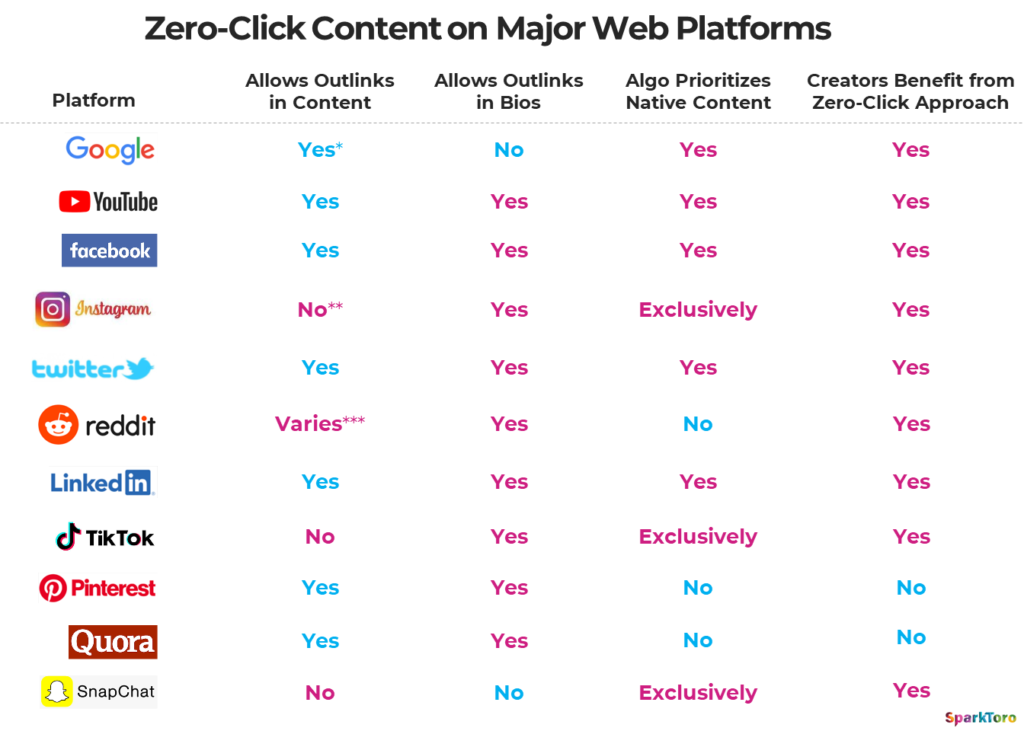
My good friend, colleague, and advisor Gaetano DiNardi recently posted a great summary of the current landscape of SEO and marketing:
This sums it up really well, and I'd underline one important factor: on top of all of this, Google has sped up its transition into the zero-click world, with more and more results on Google including a generative AI answer or a snippet with info boxes. It ends up blocking a big part, if not all, of above-the-fold content.
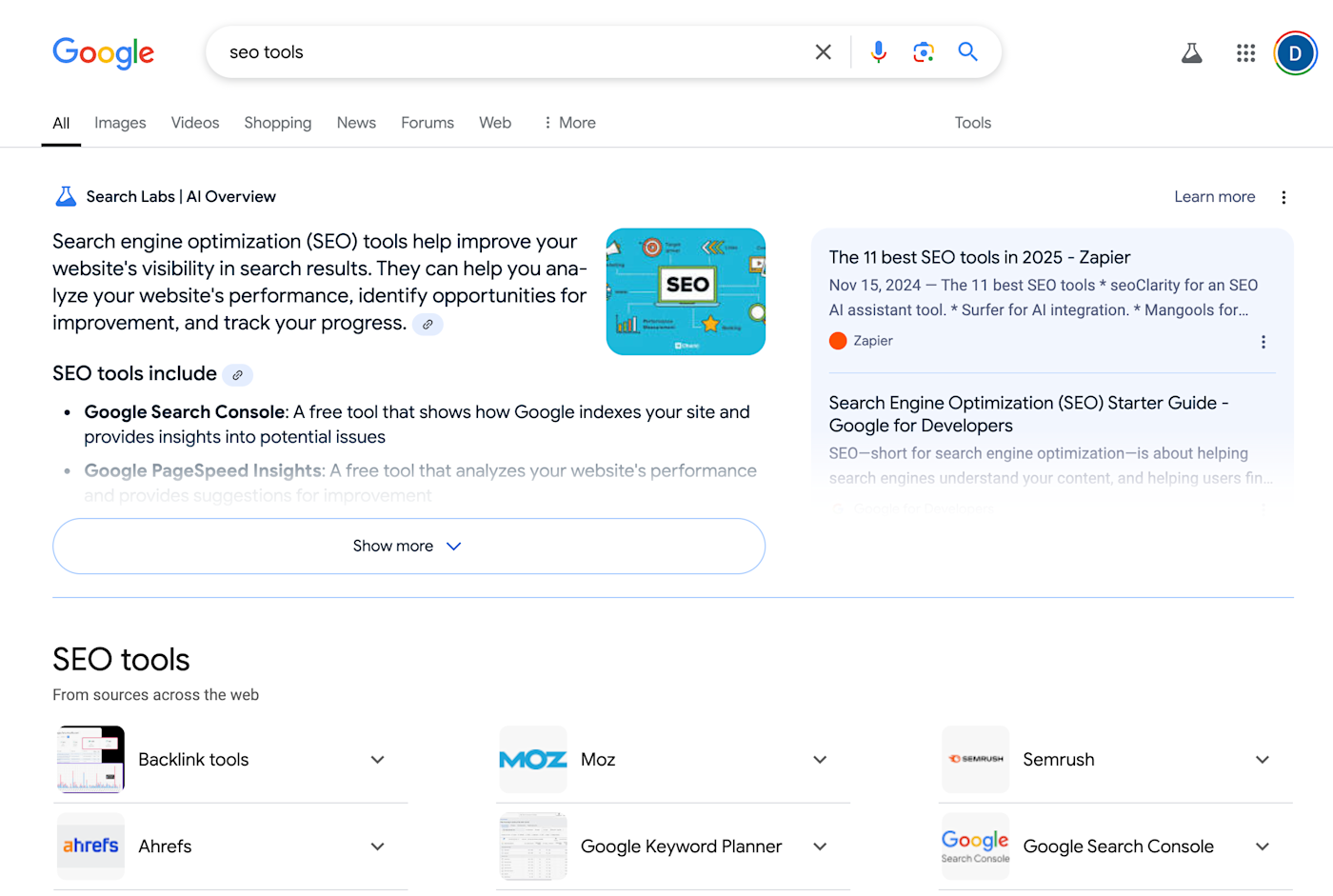
Meanwhile, ChatGPT and other LLMs are exploding in popularity. People are seeing a record-breaking number of leads coming from LLMs. Here's Emilia Korczynska, VP of Marketing at UserPilot, sharing her experience:
Because of all this, SEOs and marketers are thinking about direct marketing: reaching people through the right sources of influence, be it Reddit, podcast interviews, newsletters, YouTube channels, or anything in between. We're also thinking about generative engine optimization: reverse engineering ChatGPT, Perplexity, and other LLMs to optimize and get our brands ranking #1 for specific answers from LLMs.
Basically, if you're a marketer in 2025, you need to be sure you're showing up on Google, zero-click searches, and AI tools all at the same time.
Checking and tracking your rankings on ChatGPT
Let's talk about how to get your brand "ranking" #1 in ChatGPT and other LLMs.
I started tracking ChatGPT rankings for my business back in the summer of 2024. My company, TopicRanker, helps marketers find easy-to-rank-for keywords by finding weak spots on SERPs.
I used to ask ChatGPT, "What are the best tools to analyze SERP for weak spots?" to see how my company was ranking.
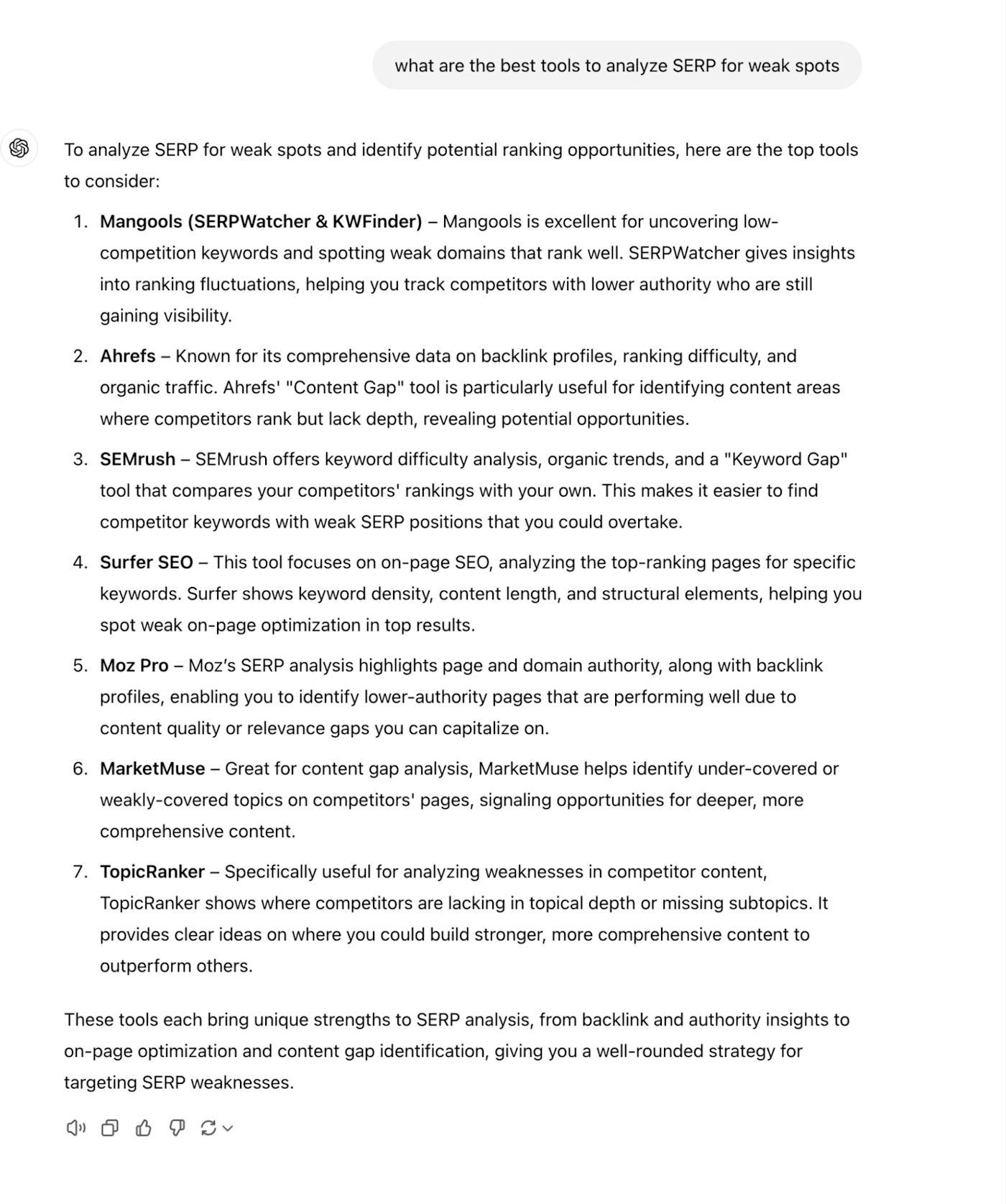
TopicRanker came up (great) at the bottom of the list (less great). But I didn't know if related prompts would put TopicRanker higher on the list. So now I automate this process with Mangools AI Search Grader, a free optimization tool that checks and evaluates brand perception and visibility in AI-powered search engines.
Enter a brand name and brief description of a relevant niche, and it runs a series of prompts that users might use when searching for your product (or your competitors). It runs each prompt 10–15 times to better understand the position, and then analyzes the AI responses and "grades" your brand with a score from 0 to 100 based on how often and where your brand appears in the AI-generated responses.
For example, if I enter Zapier and the description "automation tool," it tells me that Zapier's brand visibility for this topic is 60%—that means Zapier shows up on ChatGPT 60% of the time for these prompts.
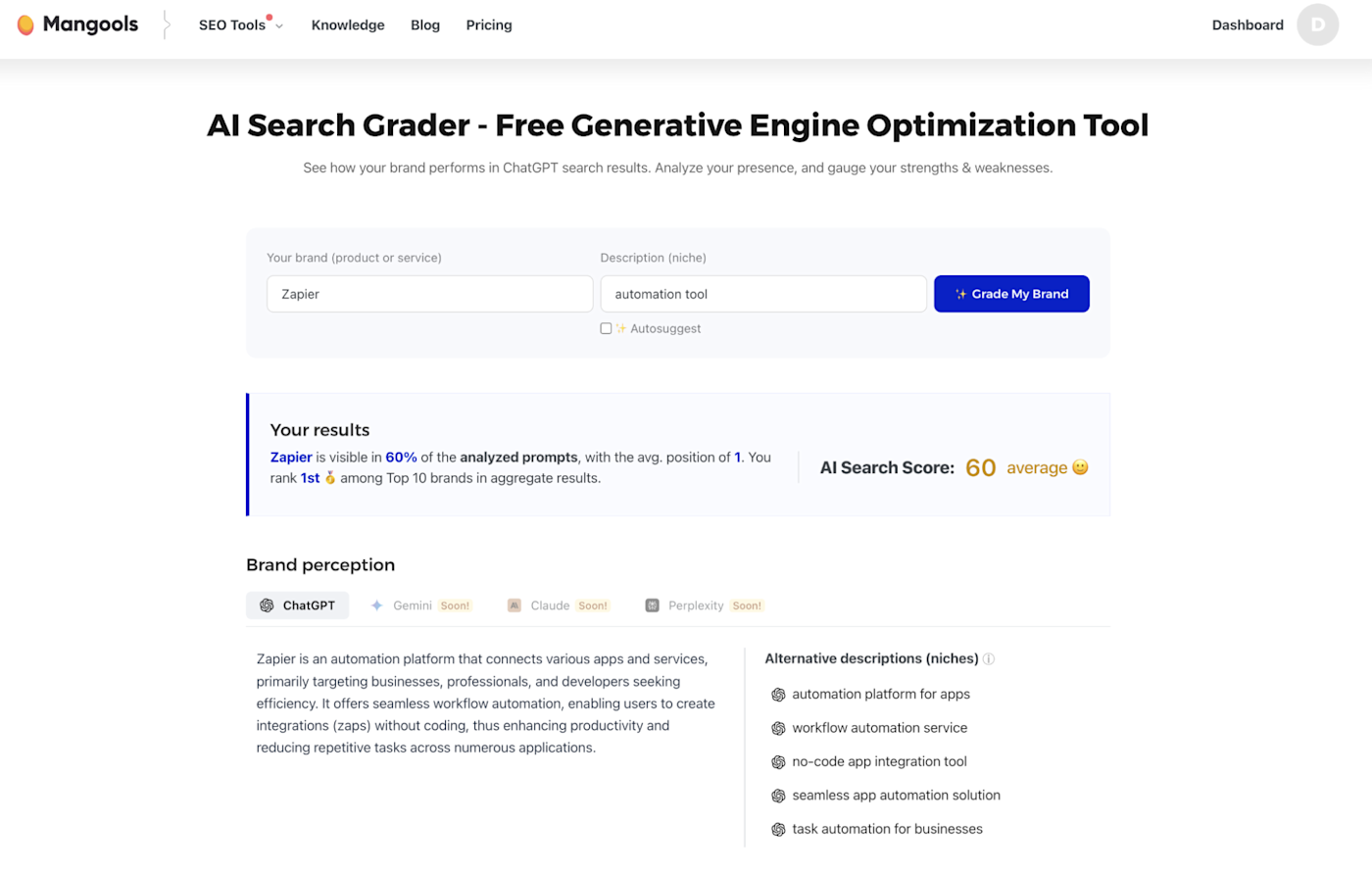
We can click in to see which prompts it ran.
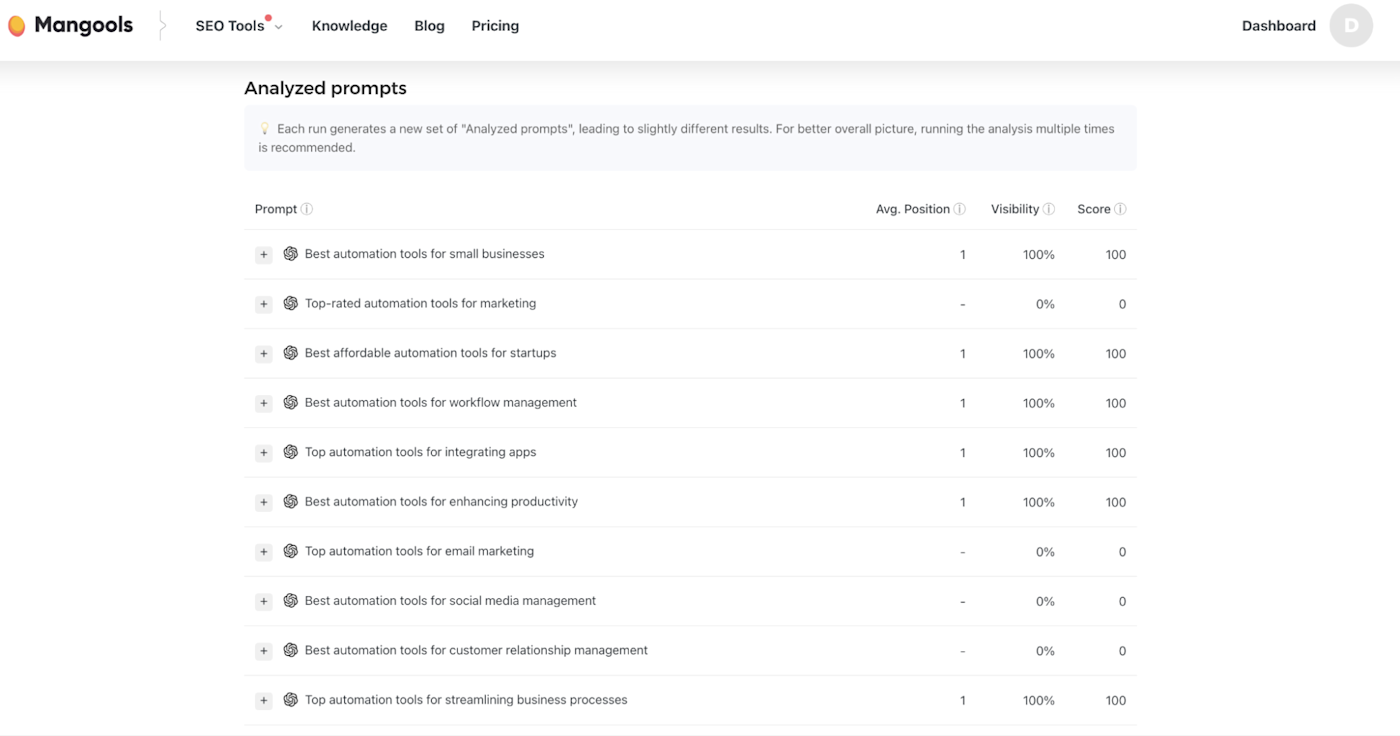
If we click into a prompt, we can also see all the competitors and their average positions for that specific prompt.
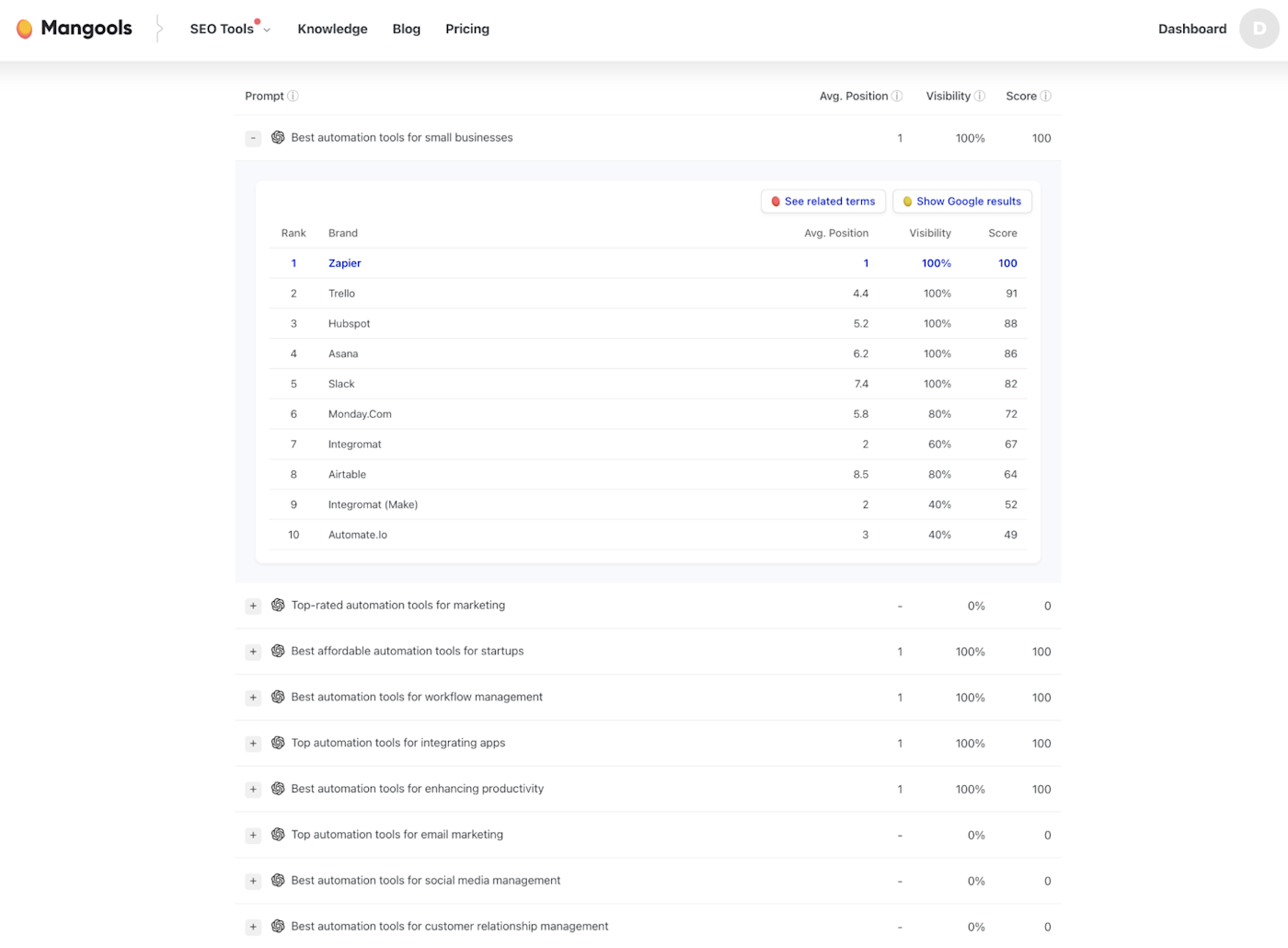
To see where Zapier could do better, we want to see prompts where Zapier isn't showing up. For example, the prompt "top rated automation tools for marketing" is grading Zapier at 0%. Here's who shows up instead.
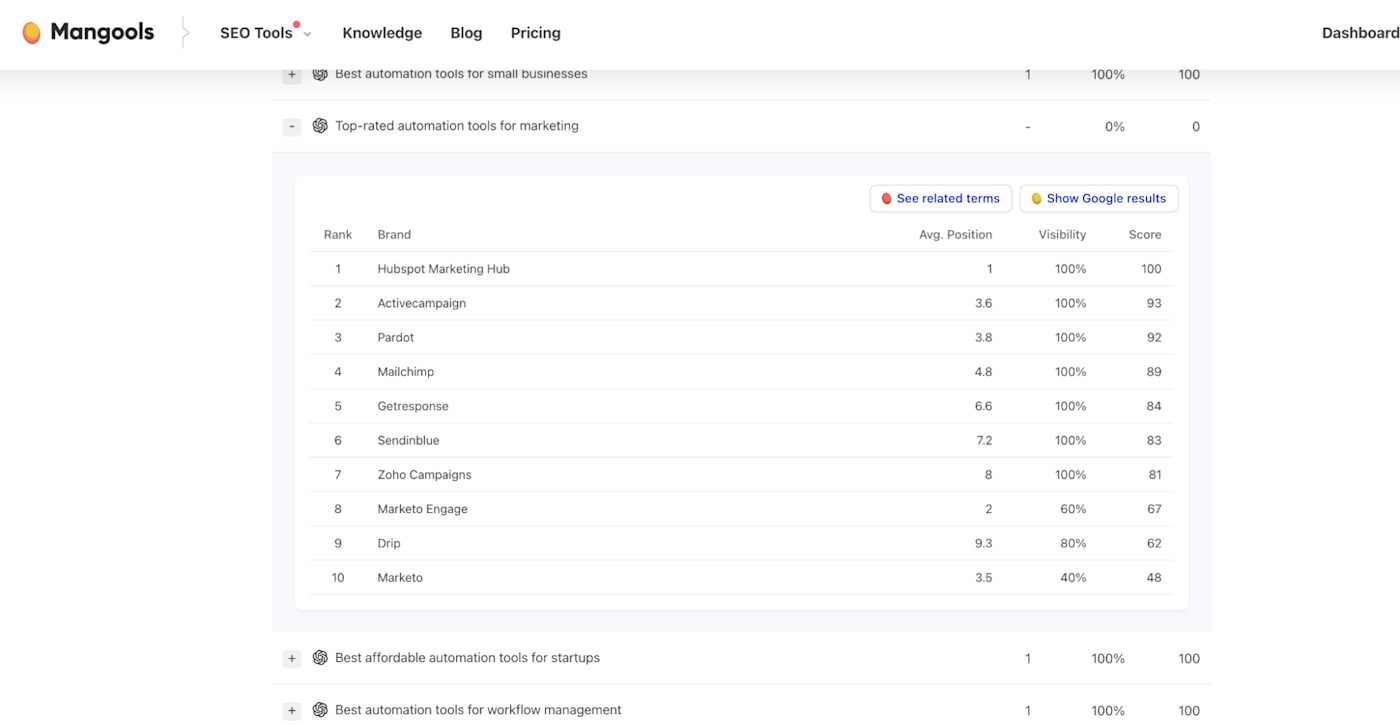
And here are the aggregated results—the top brands ranked by their overall performance across all the prompts. (Good news for Zapier.)
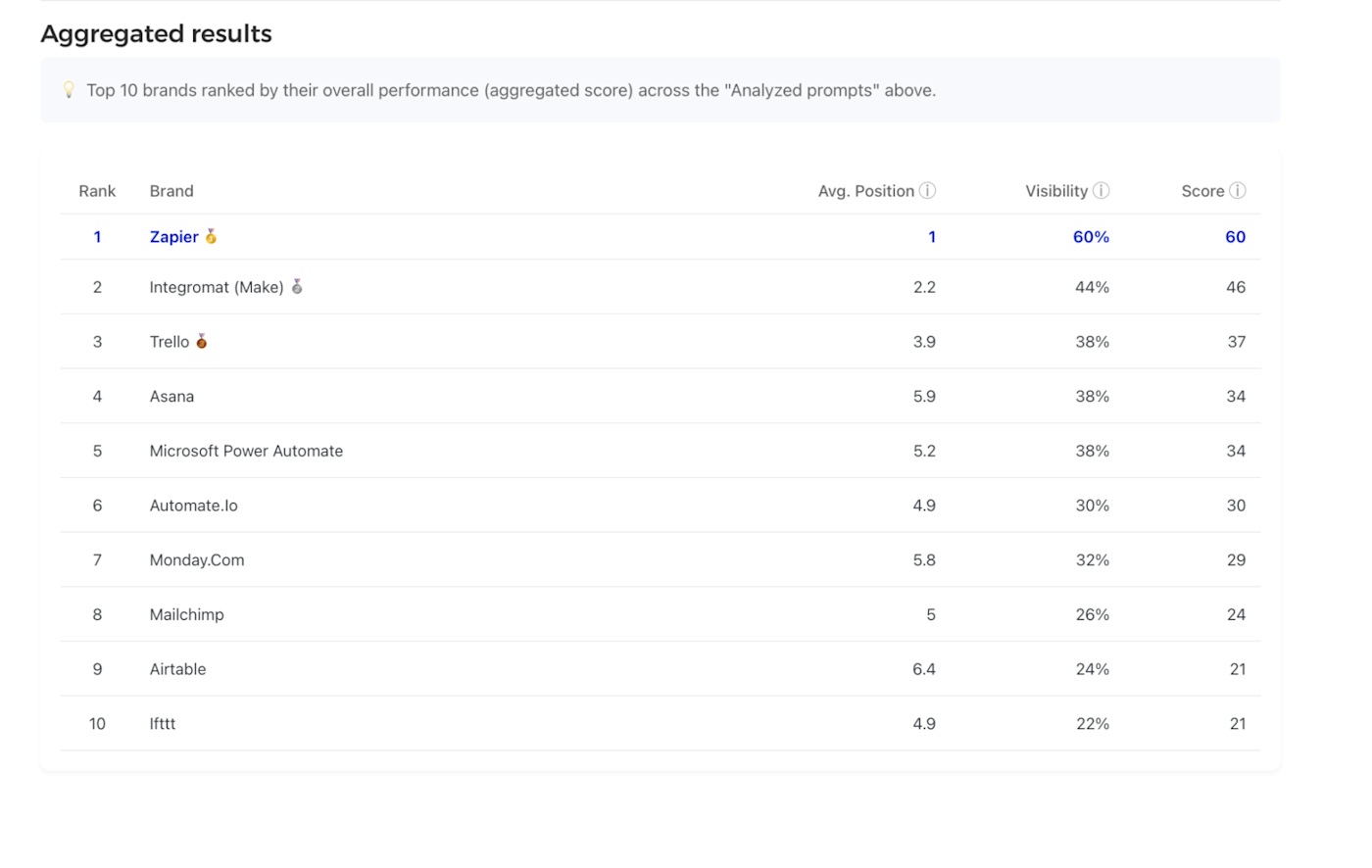
One thing to keep in mind: the description or keyword you put into the tool matters. When I use "automation platform" instead of "automation tool," Zapier gets a score of 87 to start. It's a good reminder that subtle differences in positioning can affect how an AI tool surfaces your brand.
Creating a content and PR strategy based on your rankings
Now let's say that we want to make sure that Zapier shows up #1 for the "top-rated automation tools for marketing" prompt on ChatGPT.
The first thing to do is to ask ChatGPT about the sources it's using to form its answer for a specific prompt.
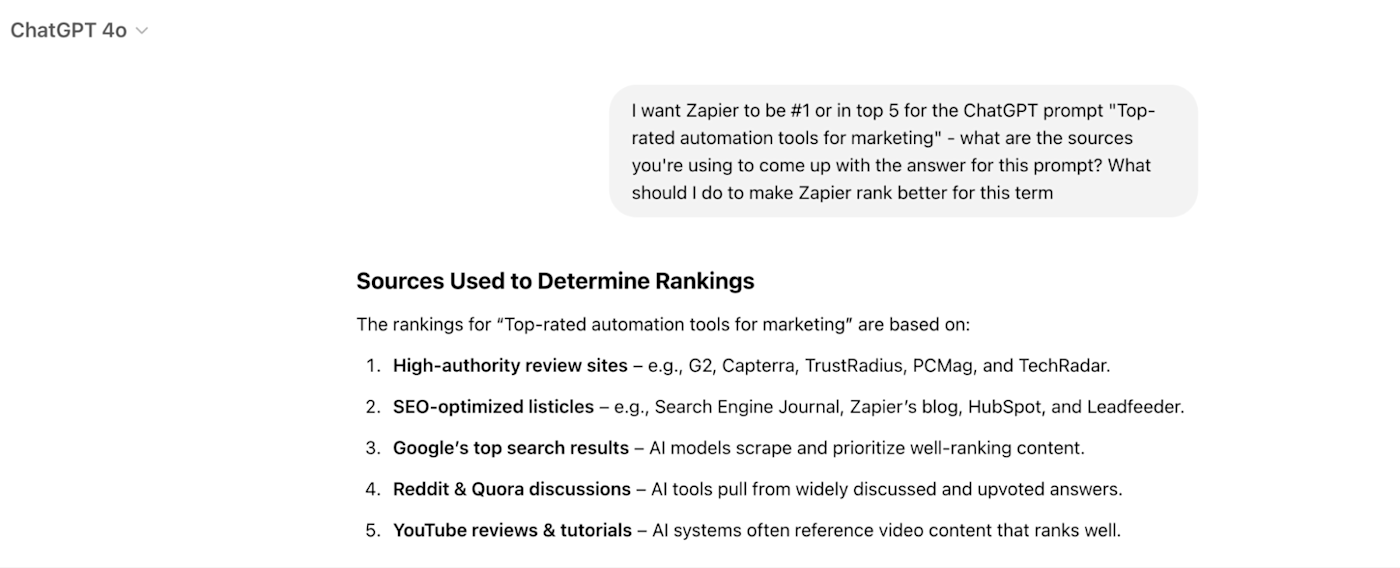
Now let's dig a little deeper to find out how important each one of those sources is in determining the answer.
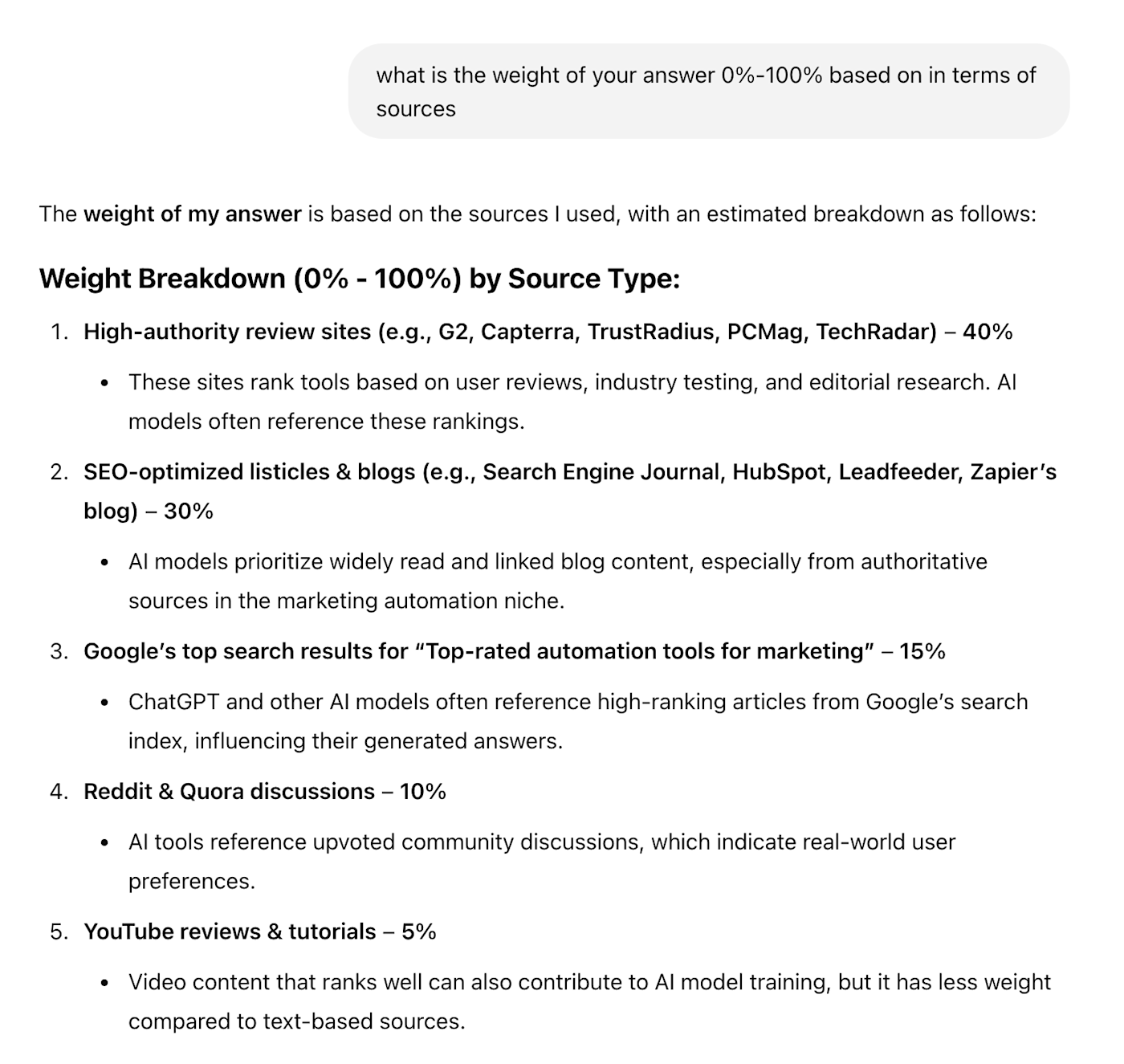
Assuming we can trust ChatGPT's answer (I'd say we kind of can), we can see where our efforts might be best directed. So let's ask ChatGPT what the easiest thing Zapier can do right now to rank better for "top-rated automation tools for marketing."
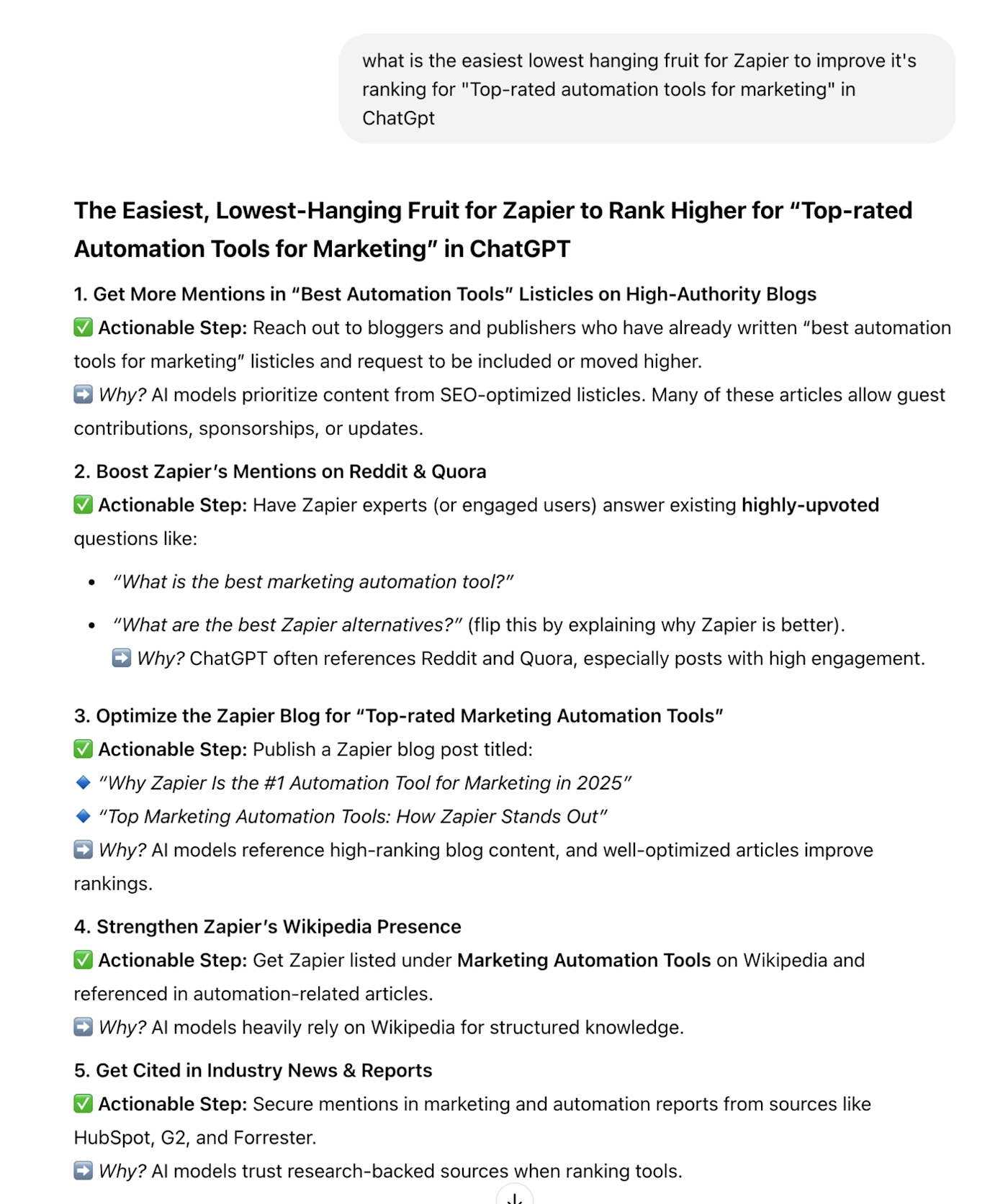
This is a great list. Zapier can use this information to improve its rankings for this term. I even asked what the #1 most impactful tactic would be.
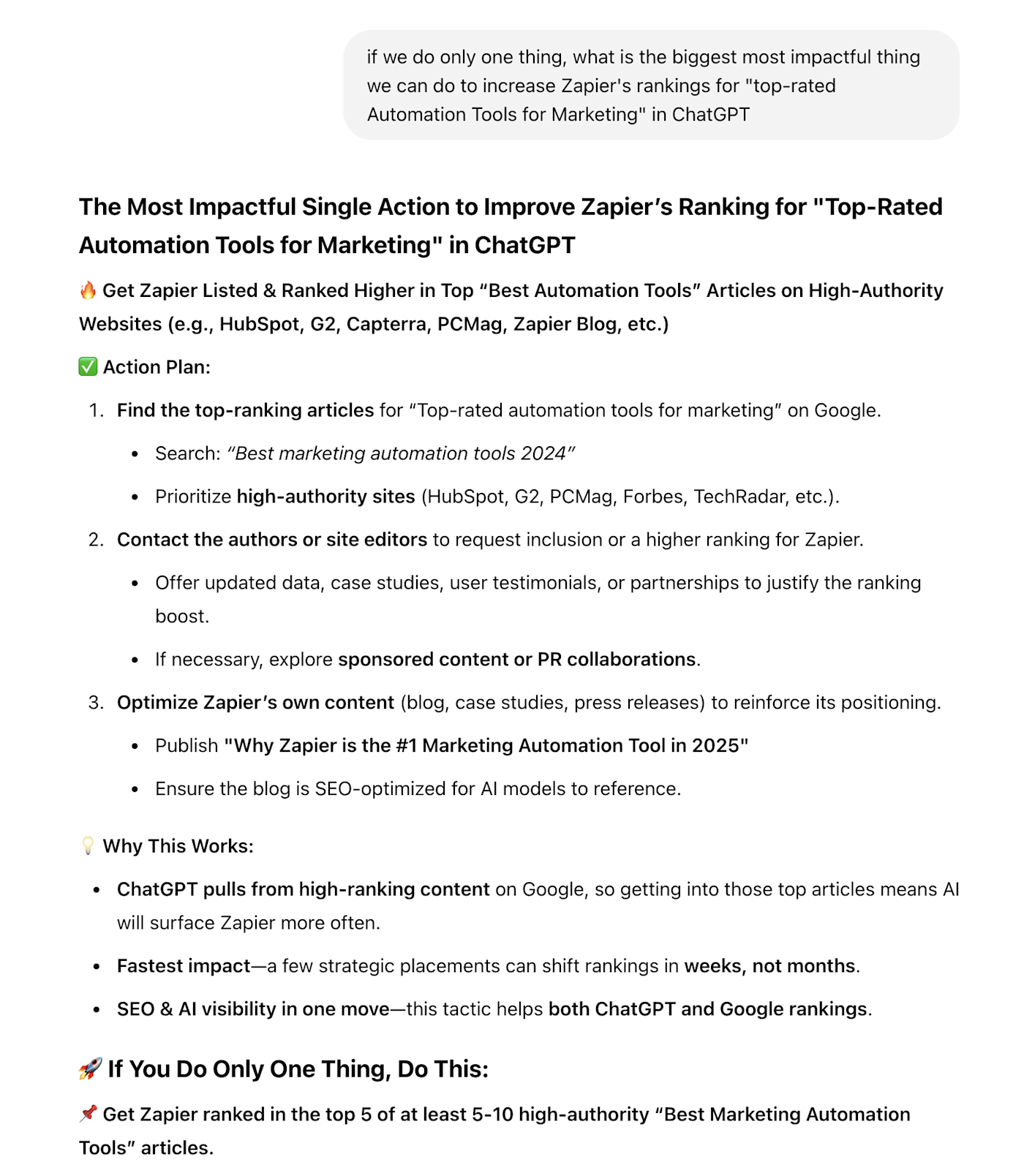
It's funny, right? We're coming full circle: ranking highly on Google will help Zapier rank highly on ChatGPT.
ChatGPT can even put it all together into a nice little chart.
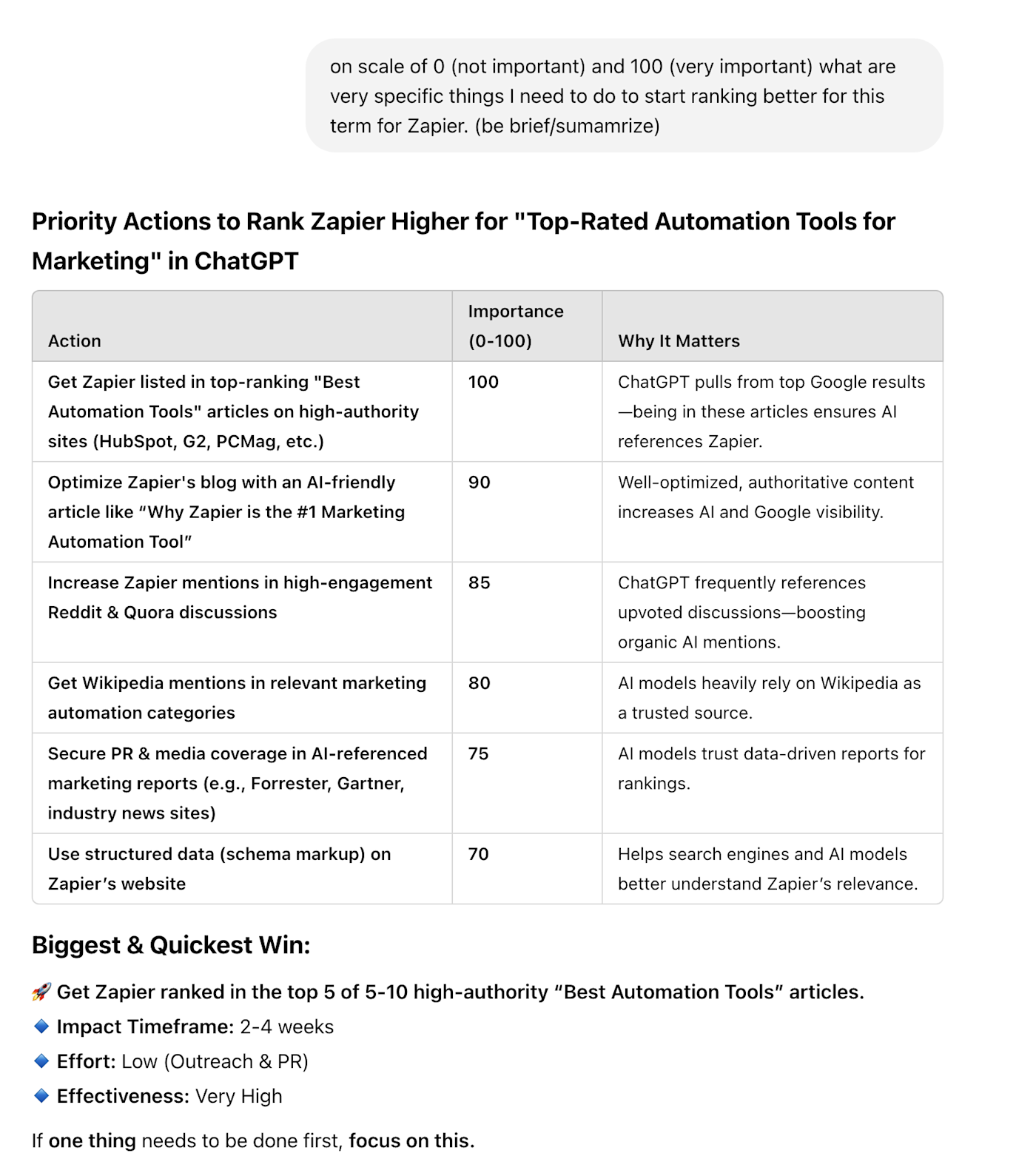
Of course, not all these things will work well with Zapier's brand goals, but it offers a number of actionable strategies for getting out of that 0% visibility on LLMs. Once they began executing this strategy, they could come back to the AI search grader and see if things were improving.
SEO vs. GEO
SEO isn't dead—it's just evolving. What used to be a game of ranking on Google is now a battle for visibility across AI-driven platforms. AI chatbots and AI search engines, like ChatGPT, Perplexity, and Gemini, are shaping how people discover brands, making GEO (generative engine optimization) the next big marketing frontier.
Unlike traditional SEO, where backlinks and content updates ruled, GEO is about teaching AIs to recognize, trust, and recommend your brand in real-time conversations. That means your marketing strategy needs to shift—focusing on structured data, strategic PR, and AI-friendly content that influences what these models surface.
The playbook to rank on LLMs is still being written, but one thing is clear: if your brand isn't optimized for AI-driven search, you're invisible to the next generation of consumers. The time to adapt is now.
Related reading:









